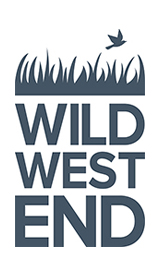James Cooksey at The Crown Estate explains why investing in green infrastructure should be a key consideration for forward thinking property businesses
Our experiences in London’s West End have proven that creating destinations that stand the test of time is about more than just great buildings.
21st century property owners have to consider a whole range of wider issues; from ecology, to air quality, transport infrastructure and public spaces, social cohesion and the local economy, as well as exploring how digital infrastructure can enhance the physical environment.
With London’s population on course to top ten million by 2030, we can’t forget the important role that green spaces play in the wider city environment as we look to meet the housing and infrastructure needs of future generations. London is often cited by commentators as being one of Europe’s worst cities for air pollution, especially for concentrations of nitrogen dioxide (N02).1 Meeting this challenge requires a whole range of solutions to limit pollutants, which is why, for example, we’ve looked to cut vehicular emissions associated with our portfolio through the introduction of a consolidated delivery service for occupiers using electric vehicles, as well as our Summer Streets traffic free shopping days on Regent Street which reduce N02 levels by up to 75%. However, plant life can make an important contribution too. In Chicago, installing green roofs across 10% of the buildings in the city removed 17,400 mg of nitrogen dioxide each year.2 Air quality is just one area which benefits from increased greening of the urban environment, but investment in green infrastructure can also bring whole range of additional benefits from enhancing ecological diversity, to raising Londoners’ quality of life, and the experience the city offers to visitors.
Recognising these benefits, we’re working to create over a hectare of new green space across Regent Street and St James’s. This will be the first phase of a pioneering ecology initiative called Wild West End, which brings together some of London’s leading property investors to promote a network of green infrastructure right across the West End. Whilst there are clear economic, social and ecological reasons for enhancing London’s green spaces, we also see a strong commercial case for developers to invest their time and capital in such projects.
Businesses today are judged on their values and the wider benefit they create as much as the strength of their balance sheet. For property developers, that means there is an increasing link between the sustainability of schemes, and of the companies that build them, and the calibre of occupiers they can attract. Alongside being innovative around power solutions and designing energy efficient structures, tree planting, green roofs and walls, and bird and bat boxes are all features that can help create the kind of sustainable development that more and more modern businesses are looking for.
Furthermore, destinations are always more successful when set amongst inspiring public spaces and preserving the natural environment within cities can enhance the attractiveness of a scheme, creating that all important sense of place. Whether its retailers concerned about driving footfall, residents looking for accommodation which offers some solitude from the city life, or businesses looking for destinations that enable them to attract the best staff, ecological installations can help to deliver an exceptional customer experience.
London’s future success depends on a whole host of things, from providing adequate housing stock and world class infrastructure, to continuing to be open to global trade and investment and providing leading retail and cultural destinations. We see a growing network of green spaces as an important part of the mix too.
The collaboration of leading property businesses behind Wild West End represents the property industry at its best; looking beyond individual short-term commercial ambitions to invest in the future of London, creating an attractive, sustainable environment capable of underpinning on-going commercial success . And, as the project continues starts to enhance the environment in the West End for the benefit of all, we’re confident that it will also prove to be a strong investment in the future of our portfolio, one which yields long-term commercial dividends for our business.
James Cooksey, Deputy Head of Urban and Head of Central London, The Crown Estate


